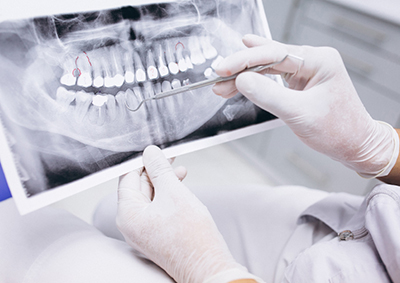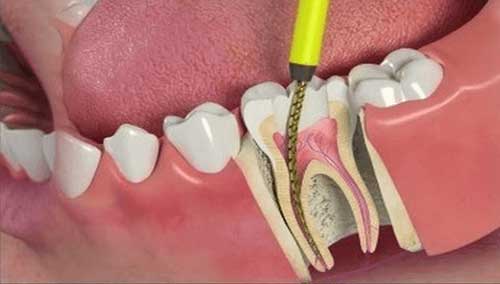The recent documentary on Netflix, Root Cause, is causing quite a stir. Many are questioning the safety and validity of root canals and their possible connection to the "c" word—yes, cancer. Periodontist Dr. Scott Froum and Endodontist Dr. Omar Ikram debunk accusations made in the documentary on three levels so that you can begin to have intelligent conversations with your dental patients.
IT'S HARD TO BELIEVE, but "Do root canals cause cancer?" is a genuine question many patients are asking after a documentary on Netflix called Root Cause aired and made a case for endodontic therapy being linked to an increase in cancer rates. This brief article will attempt to debunk the accusations made in this documentary on three levels, so that an intelligent conversation can be had with your current and potential dental patients.
Focal infection theory
The theory discussed in the Root Cause documentary—the focal infection theory—suggests that chronic diseases are caused by localized infections. In the documentary, this theory was used as a basis to state that because we cannot remove all of the bacteria in a root canal-treated tooth, a chronic inflammatory response is induced. Claims were made that the chronic inflammation associated with these root canal-treated teeth led to systemic diseases such as cancer, arthritis, heart disease, chronic fatigue, and male impotence.
Why the focal infection theory is false
The focal infection theory was devised by a dentist named Weston Price in 1922. That was 100 years ago. The true science behind root canals and the techniques used to treat apical periodontitis were not developed until 1965, 45 years after the focal infection theory was promulgated. (1) Because the cause of the etiology of apical periodontitis was unknown 100 years ago, root canal treatments were highly variable, no protocols were established, and root canals performed at that time cannot be compared to root canals performed today. The modern concepts of endodontics that dentists perform today—such as irrigation, medication, and microscopic debridement—wouldn’t have been mainstream practice 100 years ago. The theory of focal infection was found to be flawed, as the studies performed by Dr. Price lacked control groups, were found to have bias, and, overall, had poor experimental design. (2) However, even if you still believe in this 100-year-old theory, modern-era root canal techniques would not leave the same bacteria in the tooth as the root canals that were performed a century ago.
Cause and effect
The definition of cause and effect is a relationship between events or things, where one is the result of the other or others. This is a combination of action and reaction. Correlation, on the other hand, is defined as a mutual relationship between two or more things. A confounding variable is defined as an extra variable that was not accounted for in a study that can ruin an experiment and suggest correlation, when in fact there is none.
How the documentary incorrectly uses cause and effect
In this documentary, the case is made by one osteopathic physician that 97% of terminal cancer patients (breast cancer) previously had root canal procedures. Because of this percentage, the claim is made that root canals cause cancer. Cause and effect, clear and simple. The problem with this rationale is that the highest incidence of women with breast cancer are in the age range of 50–75. (3) Similarly, the age range that exhibits the highest prevalence of root canal-treated teeth are in this same age range. (4) The statement that people with breast cancer had root canal therapy so root canal therapy causes breast cancer is not a logical statement. This is not cause and effect. This correlation is further proved false by the confounding variable of age. In other words, this statement would be similar to a statement that says 97% of the people who had breast cancer had skin wrinkles so skin wrinkles cause breast cancer.







